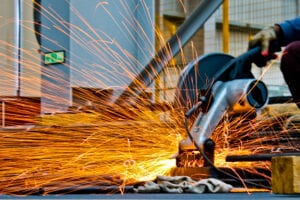
Equipment is the lifeblood of your business. Along with your employees, it’s what sets you out from the competition, both reputation and productivity-wise. Any company that can provide a superior product or service at an affordable price will secure loyal customers; that’s undoubtable.
What’s unpredictable is the equipment itself. You might assume a tool is essential, but you never know until you cover all the bases. How do you do that? How do you reduce your liability without stumbling around and missing opportunities?
If your answers fit in with your business plan, it’s time to pull the trigger. Here’s how to tell whether they do or don’t.
Are There Realistic Options?
Sometimes, the decision is taken out of your hands when there are no realistic options. This happens when a company and the products it produces are the best on the market and have little competition for your money. You’ll find this occurs when you’re searching for very abstract resources, such as hydrographic equipment, as only a handful of providers will exist. Sure, you could try and cut costs, yet it wouldn’t be in your interest if the supplier is regarded as an industry leader. You pretty much know that your investment is a sound one based on their standing in the industry.
What Do You Need?
Entrepreneurs assume they require a piece of equipment to do one thing, only to realize they need it to do another thing entirely. As such, it’s vital to study every aspect of the investment to see if there are more sides to the coin. For example, as well as being affordable upfront, you could need it to be cheap to run. In this case, an eco-friendly supplier is a smarter choice as the fact the tool uses less juice should make it less expensive in the long-term.
What Are Your Maintenance Requirements?
Maintenance is pivotal since you need the equipment to run consistently and reliably. Any downtime will result in a loss of earnings, which is counterproductive – you bought it to enhance your output. Of course, issues are normal and you’ll have to deal with them at some point. When you do, it’s essential to repair the problem as quickly as possible, something that’s tough when the part is hard to find or extortionately expensive. It’s worth weighing up the maintenance factor and the accessibility consideration, before forking out for any specialized hardware or software.

Does It Fit?
Abstract equipment is bound to be big, bulky, or misshapen. Therefore, you’ve got to measure your existing structure and determine whether it will fit comfortably. Even if it does, you should factor in whether employees can carry out their duties in conjunction with the new resource. A piece of equipment should make their lives easier, not harder and riskier. Although this sounds obvious, it’s tempting to let your ambition mask your lack of space since you desperately want to succeed.
Specialist equipment is essential, but have you thought about the potential drawbacks and the solutions?
